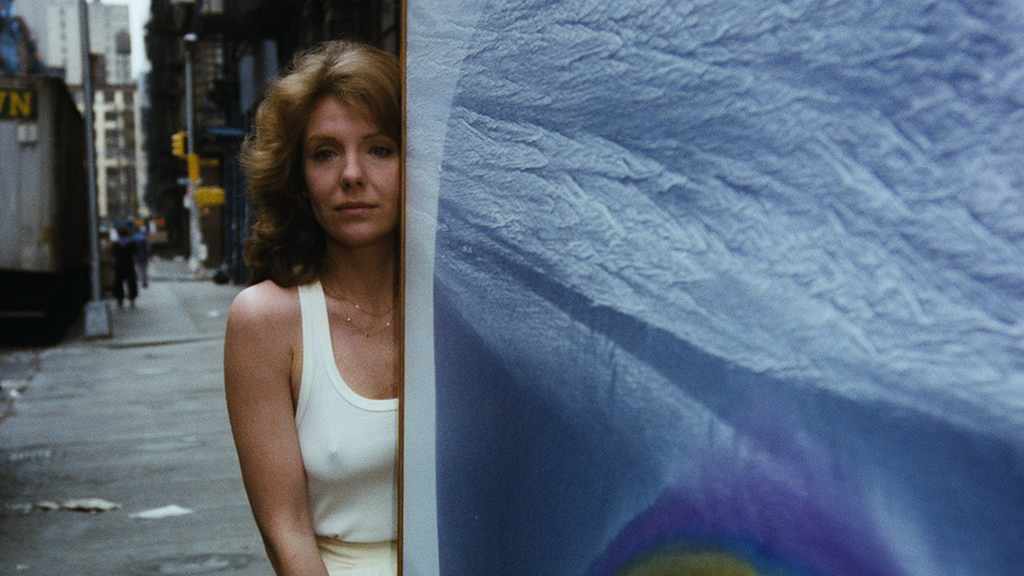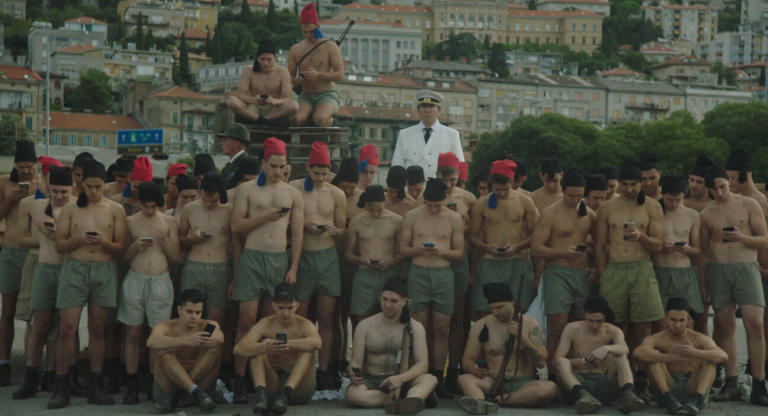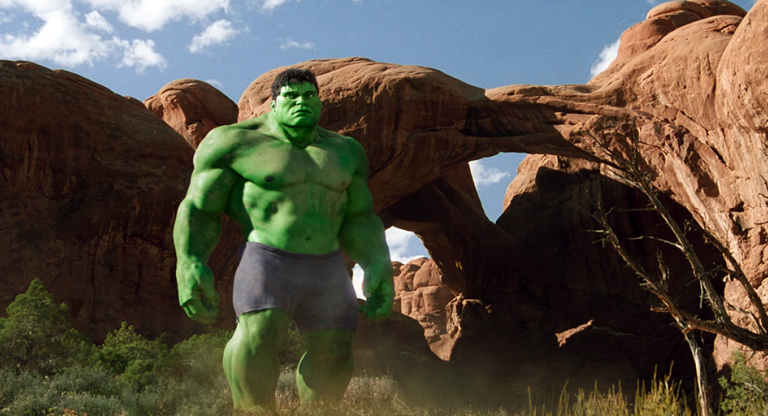The writer, editor, and labor organizer Haley Mlotek’s latest book, No Fault: A Memoir of Romance and Divorce, explores the complexities of marital dissolution in both personal and political ways. The prismatic and gently recursive book not only traces the historical origins of divorce but also reflects, candidly and intimately, on Mlotek’s personal transition to singledom after one year of marriage and a dozen years with the same man. She inquisitively navigates the landscape of marriage and divorce, examining its portrayal in both literature (Deborah Levy, Adrienne Rich), as well as mainstream (MTV’s Newlyweds, 2003-05) and more obscure media (The Continuing Story of Carol and Ferd, 1970-75).
For Metrograph, she has curated the “Divorced Woman’s Festival,” a selection of films that range across a spectrum of emotions and genres. Her picks capture the sisterhood shouldering grief in ‘90s classics like Waiting to Exhale (1995), the psychological turmoil of divorce and custody battles manifesting as body horror in The Brood (1979), and the struggle of reestablishing one’s self in Paul Mazurksy’s now-classic An Unmarried Woman (1979). I had the pleasure of speaking with Mlotek about her book and the themes woven throughout her series.
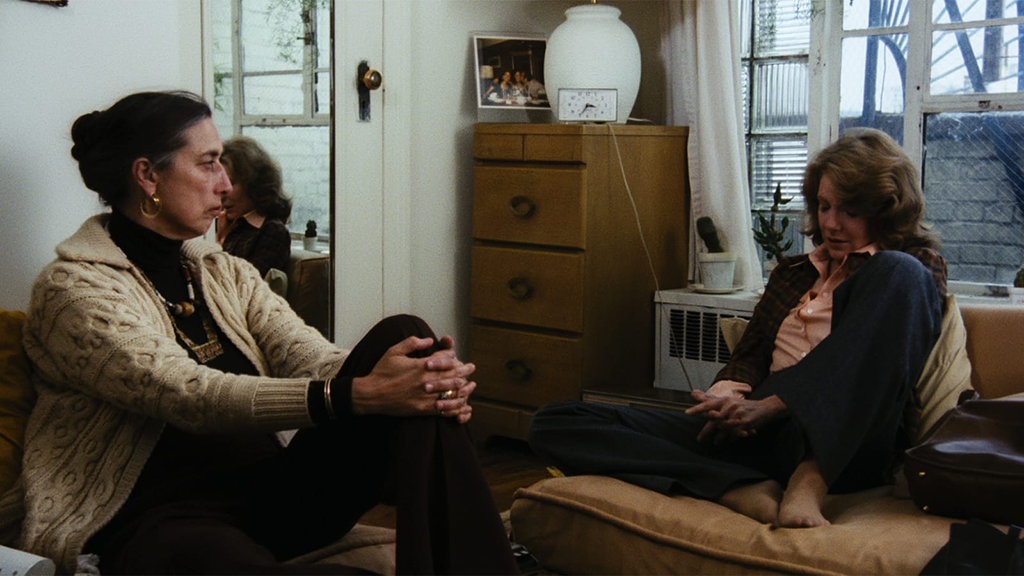
Elissa Suh: How did you decide what movies made it into this program? Was it ultimately logistical and related to what could be legally and technically booked, or did it involve a lot of narrowing down?
Haley Mlotek: It was really hard. It was hard even narrowing down the list of movies for the book, where theoretically I had much more space. For Metrograph, I ended up choosing the ones that I wrote about most significantly, but then I also thought about what movies are not so readily available for streaming, and also which ones we're lucky enough to have play in theaters frequently. I love Losing Ground (1982) and Possession (1981). Those are two of my favorite movies and I do write about them quite a bit in the book, but we're lucky that Metrograph is constantly showing them.
I really started holding firm on An Unmarried Woman (1978) instead. I have so many friends who have never been able to see it because it's so inaccessible. I'm very excited about showing it. Then, I did want a slight range in genres and different emotional tenors. There's, I think, probably a slight bias toward movies from the ‘90s because that's when I was a kid. There's War of the Roses (1989) and First Wives Club (1996) and Waiting to Exhale.
ES: Speaking of emotional tenors, I feel like the tenor of divorce movies has kind of changed from the ‘90s to now. Did you notice any big changes in this thematic grouping of films throughout the decades?
HM: I am fascinated by seeing the way we can observe how certain concepts or cultural attitudes around divorce change over time, but also what stays the same. When you collect it into a decade, you really do get a sense for a mainstream sensibility. I think it's very telling that a lot of the movies in the ‘90s are so focused on wealth and property, and a kind of comedic glamor around the concept of being heartbroken. That's such a reflection of the post 1980s “greed is good” mentality and the roots of self-help literature beginning to take hold.
In my book, I cite this really excellent work by the academic Kristen Solello called Making Marriage Work, where she traces how phrases or terms like “communication” or “compromise” became more popular when it came to discussing marriage and divorce—you can really see that in the movies coming out of the ‘90s and into the 2000s. An example that I often go to, not because they're necessarily the best movies or the most representative movies about custody, is the difference between Kramer vs. Kramer (1979) and Marriage Story (2019). That's a very good example of the way so many people have culturally adapted a certain understanding of therapy language into everyday speech. There’s an evolution of self-awareness and compassion, but at the same time, arguably, you miss out on a lot of the very real emotion. We're watching characters try to hide some of the impulses that they're ashamed of. I think that represents a very, very curious change in how divorce is being written on screen.
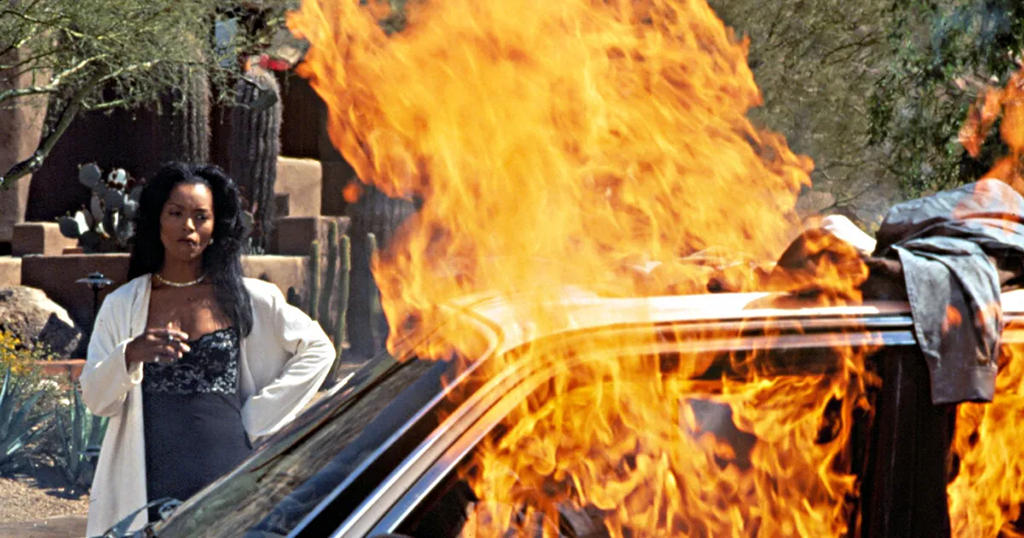
ES: Another thing that I thought was really interesting was how the movies from the ‘90s, like Waiting to Exhale [1995] and First Wives Club [1996], really focus on camaraderie. That has kind of fallen away. That’s why, from what I remember, Girls Trip [2017] was such a big deal when it came out.
HM: I was going to say that that's another divorce movie I could have totally added. I definitely read that as an extension of the hero's journey mentality, where in a lot of those movies like Eat, Pray, Love [2010], maybe our heroine will have one friend, or Under the Tuscan Sun [2003], maybe they'll get thrown into a funny little community. But these films don't really have the same emphasis on the richness of having friends who are local and available, and who know so much about you. That's part of why An Unmarried Woman is very important to me.
ES: There's a scene with eggs and breakfast in An Unmarried Woman that really stuck with me. It reminded me of a similar moment in your book where you write about making eggs for someone you’re seeing after your divorce. I’m wondering if that scene was on your mind when you wrote it.
HM: Absolutely. There's such a funny reflexive impulse to imitate what I was seeing, or what I was reading about, but then also this need to be, like, Not me though, I'm different. I write about it in the book—how after I spent so much time with these divorce narratives I started to feel overly sensitive to some of the clichés. Some of them are true, and others are so materialistic and rooted in what you can buy to make yourself feel better, so I don't like that. But I do like the idea of solidarity: that everybody is accidentally, or not so accidentally, finding themselves repeating the same behaviors or experiences that other people have been through too.
ES: What are some movies on the periphery that didn't make it into the series?
HM: One movie that I don't include in the book, because I don't write that much about custody, is A Separation (2011). I saw it for the first time when I was working on the first draft of the book, and I consider it one of the best movies about marriage, divorce, and custody. I also think it's such a brilliant form of showing what I often refer to as the “downstairs-downstairs” movie—the kind of subtle differences in class that exist within very small neighborhoods. It's so heartbreaking and it has one of the best endings of any movie ever.
Quite different, but also lovely, is Gloria [2014] and Gloria Bell [2018]. These are incredible divorce movies that really get at the full range of feelings that a woman at that stage in her life can have after a marriage ends. I’m kind of fast and loose with what I consider divorce movies. Like, I consider Certified Copy [2010] one, but I don't know if you could literally say it is.
ES: In your book, you discuss remarriage films, and the concept of “cruel optimism,” as described by the theorist Lauren Berlant. I was wondering if you could elaborate on that idea, particularly how these films often depict characters who are trying to remarry. Women may experience a sense of freedom, but ultimately return to marriage as a resolution. This theme doesn’t just appear in remarriage films, but can be seen in many contemporary portrayals of women in media.
HM: Cruel optimism has been a very important theory for me. I also include some reference to their other book, The Female Complaint, where they write more specifically about melodrama and romance in film, and the architects of those movies. In Cruel Optimism, I really appreciate how Berlant uses film as an example to show how it can both reflect aspects of real life and influence our expectations of how our own life stories should unfold. They write a lot about the Dardenne brothers, who are one of the best examples, showing just the brutality of keeping a positive attitude under capitalism.
In The Female Complaint, I was struck by a passage where the author discusses how many of the writers, directors, producers, and others behind the grand romances of the melodrama era—which runs somewhat parallel to the remarriage comedy era—were individuals who had every reason to know that these fantasies weren't real. Many of them, particularly in that era, were queer people who couldn’t be out, individuals blacklisted due to McCarthyism, or Holocaust survivors in Hollywood. These people, who had experienced profound grief, were writing about reconciliation, romance, and pain in ways that gave these stories the glamour of fantasy without depriving them of their honesty. I thought that was such a good point because sometimes—especially with movies in any form of culture that's sort of coded as being feminine—there's this idea that it's escapist. I don't think that really gets at exactly what needs these fantasies are fulfilling. It's not necessarily escaping, it's something else.
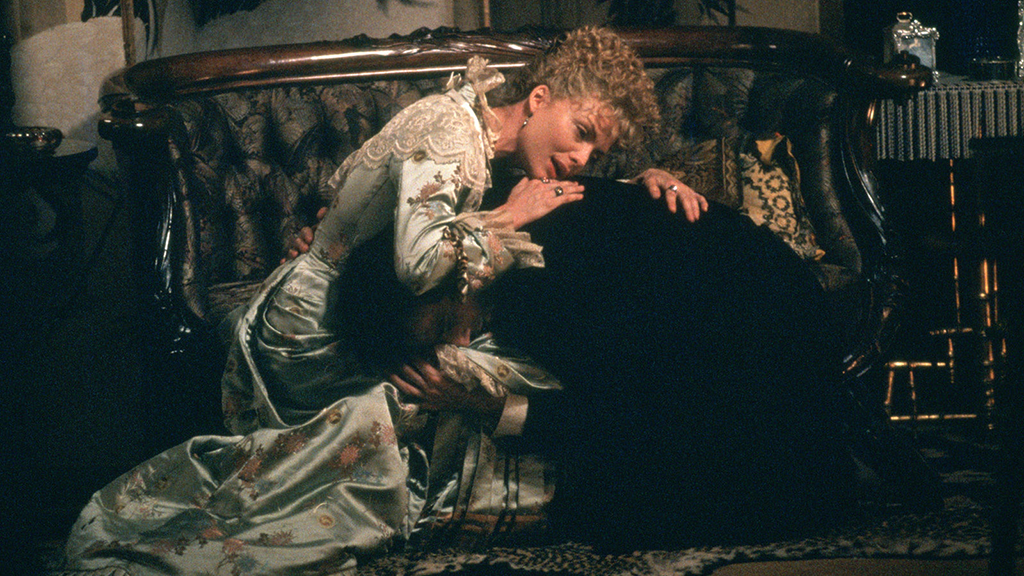
ES: In your book you write that “a character's divorced life is usually better left to the imagination.” I’m curious what you think is missing from divorce movies, or what facets you would capture in it that haven't played out on screen yet?
HM: Lately, I have been thinking more about the logical conclusion of the remarriage movies. Those of course have their own rules and tropes, which I love, and I can watch those movies a hundred times. I never get sick of them. But there are a lot of researchers and social critics who kind of rightly point out that the rate of people marrying and divorcing doesn't really tell us anything about what people think about those institutions. It's whether or not they get married again.
I think a film that takes a second marriage or a second commitment after a big breakup is fascinating because it automatically sort of loses many of the conventions that we think about as being essential to romance. You have to get rid of this idea of something being new, or first, or maybe even pure and unchallenged. We need more movies about the friendships and families that sustain us in a divorce, not the literal nuclear family, but communities as family.
ES: How many of these movies that you programmed did you see before your divorce? You grew up watching a few, like The War of the Roses, which was your mom’s favorite divorce movie.
HM: I saw most of the movie before I was divorced, but the ones I saw after were some of the most significant ones. I saw An Unmarried Woman soon after I was separated, and then a hundred thousand more times after that. The Age of Innocence was a movie that I hadn't seen until I had been separated for a year or more. It was recommended to me by one of my best friends, who I write about in the book, Teo Bugbee, a wonderful film critic themselves. I definitely had this feeling that I've been wasting so much time by not having The Age of Innocence in my life, but I don't think it would have hit as hard if it hadn't been both after the divorce and received as the gift of somebody who I loved sharing it with me.
ES: I feel the same way sometimes, when I want to be in a certain mood when I watch a movie. Lately, what kind of mood have you been in and how has your viewing reflected that? Are you still watching An Unmarried Woman on repeat?
HM: I've really been wanting to watch a lot of the movies in the series, but holding back because I know I'm about to go see all of them in a theater with my friends. Last night, my sister and I watched Phantom Thread [2017], which they had never seen before. That was a real thrill because it’s one of my favorites—such a good marriage movie. But in the winter, I find I get into a phase of only wanting to watch old action movies, or convoluted thrillers of any kind.
ES: What are some of your other favorite marriage movies?
HM: A very funny thing that I noticed when I was searching my mind for marriage movies is that Stanley Tucci comes up a lot in the marriage movies. I'm not the hugest fan of Julie and Julia [2009], but I love the depiction of Julia Child's relationship with her husband as played by Stanley Tucci. I remember watching Easy A [2010] with my sisters when I was a teenager, and Stanley Tucci and Patricia Clarkson have a very sweet marriage in that.
Beyond that, I saw the new Steven Soderbergh movie, Black Bag [2025]. I thought that was a very funny interpretation of a marriage movie. I write about it a little in the book, that it's kind of hard to make a movie about a good relationship because what's the conflict? What's going to drive the plot? But Black Bag is very much a movie about how destabilizing a good marriage is to the people outside of it, and I thought that was a very funny perspective.
The Divorced Women’s Film Festival: “No Fault” runs February 21-February 23 at Metrograph.
